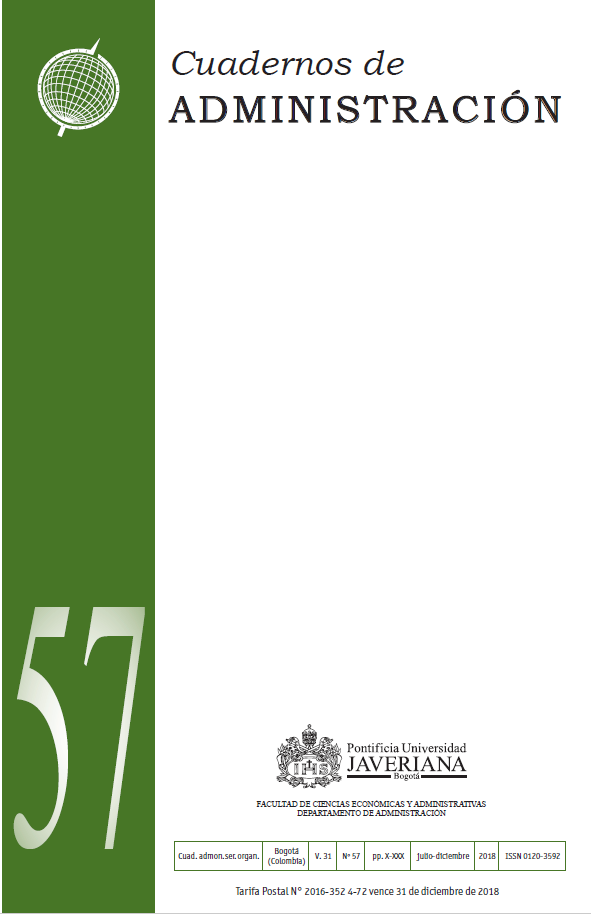Abstract
Some Western organizational studies scholars have proposed that Aristotelian Phronesisrepresents a way of including practical reason in research on business topics such as decision-making, knowledge management, ethics and leadership. Ikujiro Nonaka, a Japanese scholar with notable theoretical and practical contributions to knowledge creation in organizations and with extensive experience in Japanese corporations, has joined this group of academics. As an Eastern thinker, he takes on a Western classical tradition, namely the virtue of Phronesis, making an important contribution to the application of ethical notions to business practice, in this case knowledge management. To locate his conceptualization of Aristotelian practical wisdom, we briefly describe his theory of knowledge creation, pointing to phroneticleadership skills as essential drivers of knowledge creation in organizations. Furthermore, we assess Nonaka’s incorporation of practical rationality from the point of view of the Western classical tradition.To conclude, we discuss the scope and limits of the use of Phronesisin Nonaka´s contribution, and ultimately suggest that incorporating the will helps us to understand prudence as a virtue and not just as an intellectual habit.
Aristotle, Nicomachean Ethics, The Internet Classics Archive. http://classics.mit.edu. Access: October, 2015.
Aquinas (2006) Summa Theologiae, Cambridge University Press, Cambridge. (S. Th).
Csikszentmihalyi, Mihaly (1990), Flow: The Phsycology of Optimal Experience, Harper and Row, New York.
Fariñas, Guillermo (2011), Ikujiro Nonaka y la teoría procesal de la empresa basada en el conocimiento. Una aproximación cognitiva, Tesis doctoral. Universidad de Navarra, Instituto
Empresa y Humanismo.
http://dspace.unav.es/dspace/handle/10171/20870
Fariñas, Guillermo (2015), "La vuelta a la phronesis aristotélica en la teoría y la práctica de la empresa creadora de conocimiento de Ikujiro Nonaka", Revista Empresa y Humanismo, Vol. XVIII, Nº 1/15, p. 41-80.
Flyvbjerg, Bent (2001), Making Social Science Matter: Why Social Inquiry Fails and How it Can Succeed Again, Cambridge University Press, Oxford.
Gueldenberg, Stefan and Helting Holder (2007) "Bridging 'The Great Divide': Nonaka's Synthesis of 'Western' and 'Eastern' Knowledge Concepts Reassessed", Organization, 14(1): 101-
Nonaka, Ikujiro (1991) "The Knowledge-creating Company", Harvard of Business Review, vol. 69, nº 6, p. 96-104.
Nonaka, Ikujiro and Takeuchi, Hirotaka (1995) The Knowledge-creating Company, Oxford University Press, New York.
Nonaka, Ikujiro; Toyama, Ryoko; and Konno, Noboru (2000) "SECI, Ba and Leadership: a Unified Model of Dynamic
Knowledge Creation", Long Range Planning, vol. 33, nº 1, p. 5-
Nonaka, Ikujiro and Peltokorpy, Vesa (2006) "Objectivity and Subjectivity in Knowledge Management: a Review of 20 Top Articles," Knowledge and Process Management, Vol. 13, 2, p. 73-82.
Nonaka, Ikujiro and Toyama, Ryoko (2007a) "Why Do Firms Differ? The Theory of Knowledge-Creating Firm", in Ichijo, K and
Nonaka, I. (eds.) Knowledge Creation and Management. New Challenges for Managers, Oxford University Press, p. 13-31.
Nonaka, Ikujiro and Toyama, Ryoko (2007b) "Strategic Management as Distributed Practical Wisdom (Phronesis)", Industrial and Corporate Change, vol. 16, nº 3, p. 371-394.
Nonaka, Ikujiro; Toyama, Ryoko; and Hirata, Toru (2008) Managing Flow: A Process Theory of the knowledge-based Firm, Basingstoke England, Palgrave Macmillan, New York.
Nonaka, Ikujiro and Takeuchi, Hirotaka (2011a) "The Wise Leader. How CEOs can learn Practical Wisdom to Help them do What's Right for their Companies -and Society", Harvard
Business Review, vol. 89, nº 5, p. 58-67.
Nonaka, Ikujiro; Toyama, Ryoko; and Peltokorpi, Vesa (2011b) "The Distributed and Dynamic Dimensions of Human Capital", in
Burton-Jones, A. and Spender, J. The Oxford Handbook of
Human Capital, Oxford University Press, p. 459-476.
Plato, Apology, The Internet Classics Archive. http://classics.mit.edu. Access: October, 2015.
Sandberg, Jörgen, y Tsoukas, Haridimos (2011), "Grasping the
Logic of Practice: Theorizing through Practical Rationality", The
Academy of Management Review, vol. 3, nº 2, p. 338-360.
Sellés, Juan Fernando (1999) "La virtud de la prudencia según
Tomás de Aquino," Cuadernos de Anuario Filosófico, nº 90,
Servicio de Publicaciones de la Universidad de Navarra,
Pamplona.
Sellés, Juan Fernando (2000) "Razón teórica y Razón práctica
según Tomás de Aquino," Cuadernos de Anuario Filosófico, nº
, Servicio de Publicaciones de la Universidad de Navarra,
Pamplona.
Von Krogh, Georg; Ichijo, Kazuo and Nonaka, Ikujiro (2000)
Enabling Knowledge Creation: How to Unlock the Mystery of
Tacit Knowledge and Release the Power of Innovation, Oxford
University Press, New York.
Von Krogh, Georg; Nonaka, Ikujiro and Rechsteiner, Lise
(2011c) "Leadership in Organizational Knowledge Creation: A Review and Framework", Journal of Management Studies, Blackwell Publishing Ltd and Society for the Advancement of Management Studies, p. 1-38.
This work is licensed under a Creative Commons Attribution-NonCommercial-ShareAlike 3.0 Unported License.


